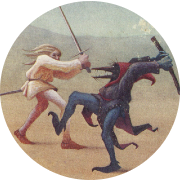- SKULL.GIF
- Jan 20, 2017
-


|
The Divide is basically a long-rear end lesson where the moral is "do absolutely everything in your power to not be poor". but this post will be about what happens to noncitizens when they're detected by the system and bodily thrown out of the country -- that is, the sort of thing that Trump and Sessions have amplified to 10x what it was under Obama, and riled 62 million people up into arms about these evil dastardly nonwhite immigrants
Matt Taibbi -- The Divide posted:The number of stories like this boggles the mind. Three hundred ninety-six thousand, nine hundred and six people were deported from the United States in 2011.
Of those, just over a thousand (1,119) had records for homicide, and just under six thousand (5,848) had convictions for sexual offenses. Roughly 80,000 more had other, lesser convictions for offenses like DUIs.
The overwhelming remainder were like Ella, people guilty of little civil infractions, what immigration authorities term Level 3 offenses: traffic violations, immigration violations, and so on. In some communities, like Georgia’s Cobb County, 60 percent of all detainees were caught for traffic violations. Many of those people were deported through rule 287(g), which is only supposed to target immigrants who are a “threat to public safety” and a “danger to the community.” The rule was supposed to make it easier to deport Mexican murderers, but the distinction got lost in the wash. Instead, the people we’re deporting are the ones who fled from Mexican murderers.
“Obama has broken all the deportation records,” says Nieblas. “One million people in just a few years. Incredible.”
Meanwhile, not one single employee of any foreign bank—not one banker from Barclays, Deutsche Bank, RBS, Dexia, Société Générale, or any of the other numerous foreign banks that have been caught up in the many serious fraud and manipulation scandals in recent years—has yet been deported or jailed for any crime connected to the 2008 financial crisis.
So we’ve built a massive and ruthless police apparatus for the ordinary immigrant population, complete with a sprawling, essentially extralegal detention complex, to catch and detain people who have not committed any actual crimes.
This gigantic, menacing complex of bars, chains, buses, and airplanes built to deal with the immigrant poor stands in stark contrast to the tiny, disorganized confederation of perhaps a few hundred lawyers policing transnational financial companies. We don’t have special jails for foreigners or executives from foreign firms who steal by the million or billion.
So hundreds of thousands of people go to jail without committing crimes. Thousands or tens of thousands more commit extremely serious crimes, and no jail even exists to detain them.
There’s a profound story here about what’s happening to the very idea of citizenship, be it individual or corporate, in the new global economy. It used to be that citizenship in a strong and healthy state was universally prized, because citizenship confers rights. But with citizenship also comes responsibilities, and it turns out that not everybody wants those. In the minds of some, if you can get the rights without the responsibilities, you’re really onto something.
In other words, there’s a new class of people whose goal is to become above citizenship. Live in America, conduct your trades in the weaker regulatory arena in London, pay your taxes in Antigua or the Isle of Man. Keep the rights but offshore the responsibilities.
The flip side is that there is a growing subset of people, like undocumented immigrants, who live below the level of full citizenship. If the first group is stateless by choice, these people are involuntarily stateless and have virtually no rights at all.
For a country founded on the idea that rights are inalienable and inherent from birth, we’ve developed a high tolerance for conditional rights and conditional citizenship. And the one condition, it turns out, is money. If you have a lot of it, the legal road you get to travel is well lit and beautifully maintained. If you don’t, it’s a dark alley and most Americans would be shocked to find out what’s at the end of it.
and what happens to people who are deported? here's the story of Alvaro, a successful business owner who got deported for the crime of being mexican:
Matt Taibbi -- The Divide posted:Once upon a time, most of the hardest labor in the chicken plants was done by black workers, and back then the area the workers lived in was called Niggertown. Then, after the Vietnam War, the town ghetto gained a Southeast Asian flavor with an influx of refugees, and the plants were suddenly manned by Vietnamese.
Arturo Corso, who in the 1990s worked as an assistant district attorney here, recalls a famous tale about white Gainesville’s relationship to the Vietnamese community. In 1985 the town brought murder charges against Nguyen Ngoc Tieu, a twenty-seven-year-old Vietnamese man who had allegedly stabbed a white woman named Debbie Rollins.
“This was way before my time,” says Corso. “The trial starts, and one witness after the other gets up on the stand and points at the defendant. They’re saying, ‘Yes, that’s him, he did this, he did that.’ And every time they testify that he did something, the guy just sits there and says, ‘Not me, not me!’ ”
Corso pauses and shakes his head.
“A whole day of the trial goes by like this,” he says. “The second day begins and it’s the same thing—every time the witness points at the defendant, he keeps saying, ‘Not me, not me!’ And everyone thinks what he means is ‘I didn’t do it.’
“They were almost done with the second day of the trial before they figured out that what he really meant was, he wasn’t Nguyen Ngoc Tieu! They had the wrong guy!”
It turned out the court had screwed up and dragged another Vietnamese man, a thief named Hen Van Nguyen, up from the jails to sit at trial for the Rollins murder. The real killer’s own lawyer didn’t even notice. It was a landmark moment in the history of “they all look alike to me.” The judge declared a mistrial, but a month later the actual defendant, Tieu, was still sentenced to life in prison, despite the fact that most of the key witnesses had fingered a completely different person for the crime under oath.
That incident might have been part of the reason the Vietnamese community packed up and left Gainesville en masse in the late 1980s and early 1990s.
In their place came the Latinos, mostly from Mexico. Two decades ago Latinos made up 8 percent of the population here. By 2010 that number was 42 percent.
But now the Latinos, too, are starting to leave, which may be part of a larger trend of Latino immigrants returning home as the American economy worsens, making the country’s less appealing sides less worth putting up with. In this small Georgia community, for instance, the endless roadblocks and car stops mean that most local Latino residents get around using an exhausting regime of taxis, buses, and bicycles, and the constant harassment wears on them. “People are leaving,” says Aaron Rico, Jose’s brother and another Fiesta cabdriver. “Go to a city or something. It is getting to be too much.”
The war on immigrants in Georgia took an extraordinary turn in the middle of the last decade when the state passed a series of harsh laws outlining punishments for driving without a license. Passed in 2008, Georgia codes 40-5-20 and 40-5-120 created two completely different sets of punishments for the same crime.
They dictated that a natural-born Georgia citizen who is caught driving without a license is innocent of the crime, provided he gets a license before trial. In other words, even if he is technically guilty of the crime at the time of arrest, he can be declared retroactively innocent, so long as he takes a trip down to the DMV and gets himself a license. He doesn’t even have to pay a fine.
Meanwhile, an undocumented resident, who is not entitled to get a license before or after arrest, pays significant new penalties under the laws. He’s jailed for a minimum of two days (and a maximum of twelve), pays a fine of five hundred to a thousand dollars, and is convicted of a misdemeanor—or a felony if there are four offenses in five years.
There are no other laws like this in America that provide retroactive amnesty to some while others face significant punishment for the same crime. Some immigration lawyers claim the Georgia statutes would seem to violate the U.S. Constitution in at least two ways, first by creating an ex post facto law (banned in Article 1) and second by violating the “privileges and immunities” clause.
None of that matters: the laws are on the books, and since 2008 there’s been a sharp increase in the number of arrests of undocumented aliens for violating the no-license statute. The immigrants know this, which is why the daily effort to get to and from work has turned into something like an ongoing military campaign, with immigrants employing guerrilla strategies—cab networks, shared bicycles, carpooling, etc.—to try to avoid capture.
The problem is, some immigrants have no choice but to stay and take their chances, working in businesses where a bicycle won’t cut it. Alvaro Fernandez*1 is one of those people.
A native of Colombia, Alvaro has been in America for more than ten years and runs a successful construction business in the Hall County area, around Gainesville. He has good relationships all over the county, especially with former clients, but his problem is that he has to drive a truck to and from work to carry tools and equipment. “No cabs for me,” he says, shrugging and smiling.
“I was driving home one night at about ten p.m.,” he says now. “And that’s when the odyssey started.”
The giant dragnet created by 287(g) is inspiring a whole new generation of epic survival tales. The stories you hear from people who’ve disappeared at checkpoints and roadblocks sound eerily like the literature of the Soviet gulag, with the same themes of repeat interrogations, marches, chains, total alienation from family, and clashes with harsh nature, lunatic bureaucracies, and petty human predators of every imaginable species, some wearing uniforms and some not.
Alvaro came to America in 1999 with his wife on legal tourist visas. Like many of the Latino immigrants I interviewed for this book, he at one time had a legal driver’s license in America. “When I first came, I was able to get a license on my visa,” he says. “But when my visa expired, so did my license.”
For a while, things were cool. Alvaro built up his business, doing so well, in fact, that he’s been able to buy farmland back in his native country, setting himself or his children up for a future life as Colombian rural gentry. But the document problem nagged. He needed a driver’s license. At one point, as a stopgap measure, he made what would prove to be a fateful decision and bought himself a fake Mexican driver’s license. “They were easier to get,” he says. And when he got in a car accident in the early part of the last decade, he showed police his Mexican ID, which left him with a definite footprint in the system, as a Mexican.
All that past history came into play on the night in October 2010 when Alvaro was arrested at the checkpoint. He surrendered his truck and sat mute in the back of a squad car while two young white patrolmen took him to the local jail. He knew he would pop up in the system as a Mexican and, thinking it over in the car, silently made a command decision. If they sent him to Colombia, he realized, he might not see his wife and family again for a very long time, if ever.
“I would never be able to come back,” he says. “Not from Colombia.” Logistically, it’s harder to make it to the United States from the other side of South America, as opposed to a bordering state like Mexico.
So he decided to keep his mouth shut. Then when offered a stip order—the same deal offered to Ella and nearly every other detainee caught under 287(g)—he would take it. Instead of spending months in jail in America pending an immigration hearing, it might only be weeks. He’d be sent to Mexico, though he didn’t know where in Mexico, or how. And from Mexico, if he could find a way to connect with his family, he had a chance to have some money wired to him so he could buy a way back.
Alvaro had no idea what to expect. A fit, leather-skinned man of about fifty, with a shock of jet black hair, jovial eyes, a pronounced nose, and high cheekbones, he comes across as a worldly fellow and a man of experience but not necessarily a tough guy. He had never been in jail before.
“There were hard things, they were all hard,” he says now. “But the hardest thing was county jail. I was mixed in with really dangerous people.”
When he got to the jail, Alvaro’s immediate concern was to call a relative, specifically his nephew, to let him know what had happened and to start planning a way out. There was a phone in the jail, and inmates were allowed a half hour a day to talk. When the jailers rounded him up in the morning for breakfast and a shower, Alvaro thought he could make a call, too, and walked to the phone.
“What I didn’t know is that some of the black criminals in the jail ‘ran’ the phone,” he says. “We weren’t allowed to use it without their permission. I didn’t know and just walked up to the phone, started dialing. Before I knew it, someone jumped on me, started hitting me. I took a blow on the side of the head.”
Other Hispanic inmates rushed to his aid. The fight subsided, but Alvaro still didn’t get to make the call. He tried a second time later on, and again he was attacked, only this time he fought back. “I hit the guy and knocked him down,” he says, with a bit of pride. “But the jailers came, and because I was fighting, they put me in the hole.”
The hole, he says, was a special cell three feet by four feet, with a solid iron door, an opening to shove food through, and no toilet. There was just a hole in the ground.
“It was really disgusting,” he says. “Actually everything about the jail was disgusting. Even the orange jumpsuit they gave us, it stank of sweat. The blankets also stank. And the hole, there was no air in there.
“But I was lucky. I was out of there in four hours, transferred to the immigration detention center.”
Alvaro’s trip wasn’t a long one. He moved to the North Georgia Detention Center, run by a private company called CCA, the Corrections Corporation of America. The CCA facility in Gainesville is basically a retooled version of an old city jail. In fact, it shares a building with the Gainesville Police Department. The facility, surrounded by giant coils of razor wire, is inopportunely located in a new enterprise-zone area of Gainesville, darkening the mood for the would-be yuppie-friendly coffee shop and poetry/arts center across the street.
Still, the facility’s presence in the zone isn’t inappropriate; CCA represents one of the great enterprise models in this new phase of the American economy, which is rich in such public-private profit schemes.
Alvaro’s experience hints at why. He moved from smelly jumpsuits and grimy blankets in the public jail to a Holiday Inn–like experience at CCA.
“Oh, yeah, muy bonito,” he says. “Clean T-shirts. Clean underwear. Tres pares,” he says, flashing a thumbs-up and laughing. “You get a sandwich, a good sandwich, a box lunch. You get a bath. Seriously, you get little shampoos, toothbrushes, toothpaste, a brush for your hair, you name it. It’s all high class.”
It should be. Depending on whom you believe, CCA receives upward of $166 per day from the federal government to care for immigrants like Alvaro, which is about four times what it used to cost the INS back in the days when the government took care of its own detainees.
The big influx of cash impressed investors on Wall Street. Back in 2000, when the federal government began housing immigrant detainees in mostly privately run prisons, CCA’s share price hovered around a dollar. Today, as I write this in the summer of 2013, CCA’s share price is $34.34. It was at $23 just two years ago. The company’s revenues went from just around $300 million in 2000 to an astonishing $1.7 billion in 2011. Overall, the corrections industry is one of the soundest stock/equity bets in the world, with soaring revenues—the industry as a whole pulled in more than $5 billion in America in 2011.
The jailing-Hispanics business is the perfect mix of politics and profit. Companies like CCA donate generously to politicians everywhere, particularly at the state level. The firm has spent as much as $3.4 million lobbying in a single year and on average spends between $1 million and $2 million a year. Its lobbyists are everywhere, and in every major anti-immigrant bill, you can usually find a current or former CCA lobbyist lurking in the weeds somewhere. Arizona governor Jan Brewer, for instance, had two ex–CCA lobbyists on her staff helping write the legislation when she pushed through her notorious 1070 law, which essentially legalized racial profiling in the cause of catching illegal immigrants.
In Alvaro’s Georgia, Governor Nathan Deal, Lieutenant Governor Casey Cagle, and State Senate Majority Leader Chip Rogers had all been longtime recipients of CCA contributions when they worked to pass HB 87, a profiling law very similar to Brewer’s 1070 bill.
The result is a huge win-win for industry and the politicians they work with. A governor like Jan Brewer publicly knocks on hated immigrants and wins votes, while CCA takes home $166 a day for every immigrant caught in the law enforcement net.
Local police forces go along because the federal government compensates them for their detention of immigrants. A program called the State Criminal Alien Assistance Program (SCAAP) pays local police forces out of the federal kitty for any detained immigrants who meet certain criteria (they’re undocumented, they stayed for at least four days, and they’ve been convicted of at least two misdemeanors). According to the GAO, states received about $1.6 billion annually in SCAAP payments through the end of the 2000s, and the numbers are likely to rise in this decade.
Meanwhile, local politicians go along with the arrests because they can pitch the construction of new detention facilities by firms like CCA, the GEO Group, and MTC as moves that create new jobs—just look at glowing press reports like this one, from a CBS affiliate along the Alabama-Georgia border, WRBL, in late 2011:
quote:
CCA BEGINS HIRING FOR NEW JENKINS FACILITY
New Georgia institution brings job prospects, economic boost to local community
There are only two losers in this daisy chain of political moves. First of course are the Hispanic immigrants, who don’t vote and are essentially without a real political lobby. The second group is their employers, and they do have a lobby, but there’s a compromise in the works for them (more on that later). Everyone else—the politicians, the company itself, the towns that see new jobs for white folks—they all win.
And someone else wins, too: Wall Street. Some of the biggest investors in private prison companies are, you guessed it, the too-big-to-fail banks. Wells Fargo, for instance, has nearly $100 million invested in the GEO Group, plus about $6 million in CCA. Bank of America, General Electric, Fidelity, and Vanguard are all major investors in at least one of the three big prison companies.
And why not? Like too-big-to-fail banking itself, private prisons are an industry that depends not on the unpredictable economy but upon political connections. It’s the perfect kind of business in the oligarchical capitalism age, with guaranteed profits to provide a low-cost public insurance against the vagaries of the market. Stock analysts, naturally, are not blind to the brilliance of the business formula.
“One of the best presentations I heard discussed,” wrote an analyst from Zacks, the stock research firm, “was the corrections industry and how it was a smart and uncommon place to put your money.” CCA, the analyst went on, was one of the top selections for its steady growth and defensive nature of its business. Economies may ebb and flow, but the number of incarcerated Americans is steadily growing according to the U.S. Department of Justice.
And then the analyst in his report gleefully showed this graph:

Sources: “The Punishing Decade,” Justice Policy Institute report; “Prisoners in 2006,” Bureau of Justice Statistics Bulletin NCJ 219416.
Who wouldn’t invest in that?
Theoretically, the political winds might have blown the same way without the profit motive. But there’s no way to look at the financial picture and not conclude that the explosive combination of anti-immigrant politics and easy profits turbocharged the construction of the Big Dragnet. Ironically, the very brokest people in America, Hispanic immigrants, are one of America’s last great cash crops.
One last reason immigrants are great business: as any good defense lawyer knows, the cost of freedom is always everything you have. To put it another way, people who have no documents and no rights are desperate, and desperation is a great natural price multiplier. For immigrants caught in the dragnet, the price of everything skyrockets, beginning, usually, with the traffic ticket, and the five-hundred-dollar or thousand-dollar no-license fines are extraordinarily high for what is essentially an administrative offense. In fact, a DUI, a far more serious crime, carries the same fine in the state of Georgia.
“It’s a moneymaking scheme, pure and simple,” sighs Corso, who’s defended scores of immigrants for no-license violations.
For Alvaro, his first hint that he’d entered a new pricing paradigm as a captured alien came in the CCA facility. In virtually every CCA-run facility across America, detainees are allowed access to a commissary, where they can buy random items: Popsicles, ramen noodles, candy bars. “But everything costs three or four times the real price,” he says. One item most every detainee buys is a prepaid phone card. In most CCA facilities, the prices for these cards are also extortionate, as much as nine dollars for a card that inmates can use to make three brief calls.
“You don’t have a choice,” says Alvaro. “You’ve got to buy the card. I bought one, called my nephew, explained what was happening to me. I told him to get some money ready. I didn’t know what was coming, but I wanted to prepare.”
Once they move from the local lockup to the CCA prison, detainees enter a weird legal gray area. Like disappeared persons from the gulag era, they’re told nothing about their captivity and often have no idea how long it will be before their case is decided. The uncertainly becomes part of the interrogation process. “In my case, I didn’t get to talk to an ICE caseworker for a week and a half,” says Alvaro. “For some guys, it’s two days. Others wait for two, three weeks. You have no idea.”
When he did finally meet with his interrogator, he got the same pitch that Ella received: he had a piece of paper pushed at him, and he was asked to sign a waiver and accept voluntary deportation.
Most immigrants at least hesitate. Alvaro surprised his interrogator, a clean-shaven white ICE agent with a crew cut and heavily muscled forearms, by quickly accepting the voluntary deportation order. “I played dumb,” he says. The ICE agent eyed him suspiciously, shrugged, and took the paper away.
Days went by. Alvaro passed the time in the comically cozy CCA facility playing checkers, soccer, a little basketball. It was a relief, he says now, to be in the immigration center. “I hate to say this,” he says, “but it’s so much more dangerous to be in the county jail with the other Americans. In the CCA center it was mostly all people who’d been caught on their way to work, people with jobs. It was not a dangerous place.
“I made some friends in there, especially some younger men from Mexico who were very scared. I think they looked up to me a little. I promised to look after them until we got to the border. It was in the back of my mind that they might be able to help me once we got there.”
Nobody knew when that would be. But one morning Alvaro and all the other men were roused at five a.m. They were all put in leg chains, waist chains, and handcuffs and marched out of the CCA facility into a bus. “We were all chained,” he says. “From five in the morning until we boarded an airplane later that night, we were in chains and couldn’t go to the bathroom.”
The journey Alvaro describes from Gainesville onward is surreal. “Like a movie,” he says. They traveled from place to place, the caravan picking up more buses with more people caught in car stops and checkpoints at each place. “We went to Atlanta first, and there we met up with more people. More buses, buses, buses. I had to rub my eyes to make sure I was really seeing so many people.
“In my bus there were two men who had been in jail for drugs. The rest were people like me who’d been caught on the way to work. None of us knew exactly where we were going, but we knew we were headed for the border.”
From Atlanta, the caravan made its way westward and eventually reached an airport in Columbus, Georgia, where it was understood that the group would be flown to the border. “It was hard because the plane wasn’t ready,” Alvaro explains. “We sat there in the heat in chains waiting, waiting. Some people were getting unwell.*2 From the windows we were all watching; we saw strange things.
“The men and the women were segregated, of course, but we saw a bus full of women. One of them apparently had to go to the bathroom, so she was led out of the bus. She was in full chains—legs, hands, and hands chained to the waist. It seemed so unnecessary. Except for a few, none of us were criminals. We couldn’t escape anywhere. Anyway this woman, they led her to one of those—what do you call them?”
A Porta-Potty?
“Yes, exactly,” he says. “The guards, and there were several of them, they led her to the toilet and just pushed her in, still in chains. All of us on the bus watching this were in amazement. It would be hard even for a man to find a way to go to the bathroom with all those restraints on.
“You could see her asking the guard to undo her cuffs, but he wouldn’t. She went inside the toilet, stayed in for a while, and came out. I don’t know how she managed.”
Finally the plane arrived. For the men it was a relief, because they were allowed to urinate before boarding. “But they kept the chains on,” Alvaro says.*3
The airplane he was boarding was bigger than anything he had ever seen. “There must have been four hundred fifty of us. It was a gigantic aircraft.” The crowd of men and women got on board, still in chains, and sat through a short flight south, to Texas.
Once there, they were quickly loaded onto buses again and driven straight to an international bridge that would lead them across the border. Here, finally, the chains were removed, and Alvaro learned where he would be released, the Mexican city of Nuevo Laredo. From his seat on the bus, he peered through the window toward the border and started to think through his options, when suddenly there was a disturbance at the front of the vehicle.
“One of the men, I think, made some kind of sarcastic comment to one of the guards,” he says. “I’m not sure what it was. Something about the chains, maybe. I remember the guard suddenly turning red. In English, he said something like, ‘You want to get tough? You want to get smart?’ And the guy, he didn’t back down, and next thing you know there are four more guards in the bus. He’s leaning back in his seat, pointing his chin out at them.
“I’m thinking, uh-oh. Within a few moments they dragged that guy out of the bus. Took him away somewhere, no idea where.”
Not even certain why, Alvaro made a mental note of the man’s face.
Soon the bus door was opened, and the men inside were motioned to get out. Each of the detainees was handed a box with his property, which was the clothes he had been wearing at the time of arrest, mainly. They all changed clothes and began walking. A line of guards on either side of the detainees created a makeshift corridor. The line of people was so long, Alvaro could not see the end of it.
As he walked over the Rio Grande into Mexico, he considered the absurdity of his situation. He was being repatriated to a country he had never been to, where he knew no one and had no connections. He thought everything he had been through to that point had been difficult. “In truth, that was just the warm-up,” he says now. “The hard part was just starting.”
Once over the bridge, the group took on the feeling of a gang of prison escapees, each man unsure of whether the survival odds were better alone or in a group. Some gathered in big crowds, others went off alone. Alvaro stayed with the two young Mexican men he’d taken under his wing in Gainesville.
An undocumented immigrant is like a bleeding fish. Every predator for miles around will swim at top speed to take a bite. For Alvaro, the process had begun back in America, with the police who stopped him at night and slapped him with a seven-hundred-dollar ticket. It continued with the overpriced soups and phone cards in the CCA facility. It was now about to continue in Mexico.
He had $60 in his pocket, and going off toward downtown Nuevo Laredo with the two young men, his first thought was to change his money. There was an exchange window right near the bridge. The exchange rate at the time was 12 pesos to a dollar. He pushed his $60 across. The woman handed him back 600 pesos, seemingly expecting he wouldn’t notice she was shorting him 120 pesos.
“Apparently a lot of the men who come across the bridge do not count so well,” he says. “It took some arguing, but I got my dollars back. We moved on.”
From there Alvaro decided to get a hotel room with the two men, until they could find relatives to come and get them. He was on his way to doing that when he decided to call his nephew back in Gainesville at a phone booth. The instant he dialed the States, he felt a pair of arms grabbing him from behind. “I turned around, and it was a policeman,” he says. “A bicycle policeman, as it happened—his bike was leaning up against a wall.”
The two other young men Alvaro was with scattered when the policeman arrived. Meanwhile, the bike cop demanded that Alvaro identify himself and then told him he was under arrest.
“For what?” Alvaro asked.
“For making an illegal phone call,” the policeman said. The ticket, he said, was going to be three hundred pesos.
Alvaro stood his ground, arguing with the bicycle policeman, who eventually gave up and went away. He shook his head and laughed. An illegal phone call?
Watching this scene the whole time was an elderly man who was sitting at a shoeshine stand, waiting for customers. When Alvaro was finally done with the policeman, the old man waved him over.
“He introduced himself, asked me where I was from,” Alvaro says. “I told him, ‘I’ve just come from up north.’ He says to me, ‘You come with me, you will be my guest for the night, forget about the hotel.’ ”
Alvaro headed toward the old man’s house, stopping along the way to buy some groceries, some hot dogs, eggs, something to eat. They walked for a long time, entering neighborhoods that were progressively more and more beaten down, until finally they reached a section of the city that was completely devastated. Alvaro again remarked to himself the strangeness of his situation. “The houses were burned down, or else in complete disrepair. They were empty and boarded up,” he says. “This gave me pause. I asked the old man, ‘What happened here?’ He says, ‘Don’t ask.’ ”
Finally they made it to the old man’s house. Alvaro immediately sensed that something was odd about the home. The old man was in his late sixties and almost in rags, but he had a wife who was young and pretty. “She was twenty-five at most,” Alvaro says, “and pregnant with his child. She was very nice and didn’t seem surprised that I was there. And there were two other children in the house who were not his, and might not have been hers, either. I didn’t ask questions.”
After the long journey, Alvaro slept well; the next morning the shoe shiner took him to a downtown plaza, where he was introduced to someone described to him as “the man. The main man.” The jefe was some sort of local mafioso to whom the shoe shiner and everyone else in the area was paying tribute. “It was wild,” Alvaro says. “The guy didn’t have a telephone, but when he wanted to make a call, someone would bring him a telephone and say something like, ‘Here’s your telephone, boss.’ It was like meeting Jabba the Hutt.”
But the jefe, who went by the odd name Fitus, was good to Alvaro. Fitus told him that he could arrange a coyote, for a price. Alvaro, without getting into too many details about his life, explained that he could have some money wired, but it might take a day. Fitus seemed fine with that. He even lent Alvaro a few hundred dollars in the meantime and told him to come back the next day, or as soon as he could, with the deposit.
“While in town, I made some calls and arranged for money to be wired,” Alvaro says. “Also it was Halloween night that night, so before I went back to the old man’s house again, I bought candy for the children and some toys with the money I’d borrowed. But this second night, things went very wrong at the old man’s house. He bought some very strong beer and he got very drunk.
“Almost right away, he quarreled with that pretty young wife of his. Then he began to really give it to her. He was hitting her. I tried to tell him, ‘I know I’m a guest, but I can’t let you hurt your wife.’ So he threw me out of the house.”
It was Halloween night. Alvaro found himself alone in the pitch-black, burned-out neighborhood. He looked for a cab. Passing a junkie on the street, he asked where he could get a taxi.
“He laughed and said, ‘You must not be from around here. No taxis will come here,’ ” Alvaro says. “So I walked farther. Finally I found a cab after some time. They took me to a hotel, and I checked in. And then I made a very serious mistake. I called Colombia.”
This call was the portal into the mirror image of the American deportation machine. It turns out there’s a dragnet on the other side of the border, too.
In Mexico, there is crime, and then there’s organized crime, and then there are the Zetas, a group of gangsters known for their extreme cruelty and technical sophistication. The group was originally formed in the 1990s by Special Forces commandos, had a brief alliance with a drug organization known as the Gulf Cartel, and then broke off on its own to create a powerful crime syndicate that not only traffics in drugs but makes money through extortion and kidnapping. The Zeta trademark includes beheadings and a preference for torture over bribery. And one of the Zeta businesses involves people like Alvaro.
When he made the call out of the country, he came to the attention of these gangsters, who monitor the calls of hotel residents. An hour after he made the call, men arrived at his hotel room, dragged him outside, and threw him into a car. Alvaro was terrified but said nothing. He was driven in total silence to a big house on the outskirts of town. When he was pushed inside, he was shocked to discover familiar faces.
“There must have been twenty-five or thirty of the people who’d walked over the bridge from Laredo with me,” he says. “They’d all been kidnapped by the Zetas. They went straight from ICE custody to Zeta custody.”
Among the men in custody was the unfortunate character who had argued with the ICE officials in Alvaro’s bus on the other side of the border. Alvaro asked him what happened when the guards took him away. The man laughed. “Oh, they slapped me around a little,” he said. “But nothing serious. Not like this.”
The Zetas, Alvaro learned, operate on a simple business model. They know that most of the immigrants deported out of the United States have left relatives behind in America. Many of the deportees’ relatives have saved money to bring more loved ones to the States from Mexico. That makes the deportees natural kidnapping targets.
Alvaro asked some of the men there what their situation was. Depending on the immigrant, the Zetas were demanding to be wired five thousand to seven thousand dollars before they would be released. Alvaro asked if there was any guarantee that they would even be released after the Zetas got the money. The men shrugged.
Soon, however, his captors took him aside. “So the Zetas start asking me questions about who I am and what I’m doing,” he says. “I tell them, ‘I’m no Mexican. I’m not like these men. I’m a Colombian, and I’m heading north.’ They ask me, ‘Who’s helping you through? Who’s arranging the coyote?’
“And that’s when I got lucky. I told them Fitus was helping me. That changed everything.”
Once he dropped Fitus’s name, the Zetas disappeared and had a discussion. Soon they came back and told him, “Hang tight. We’re going to check this out with Fitus.”
So Alvaro spent a whole day in captivity, in the house outside Laredo, with the twenty-five other deportees. But Fitus vouched for Alvaro, and he was released from the haunted house. He has no idea what happened to the other men.
From there, Alvaro began the long journey back to America. He got money wired to Fitus’s friends and was taken to a place in Nuevo Laredo called the Spot. It was like a safe house.
There were twenty to thirty people in a filthy room. “No ventilation, no bathrooms, these were people who wouldn’t know what toilet paper is,” Alvaro explains. “I spent three days there. I had to sleep on a terrace outside, because the mosquitoes on the first floor were unbearable.”
Finally he and the others got on a bus, headed west, to the neighboring Mexican state of Coahuila. There, by the side of a road, they met up with two coyotes. One of them, Alvaro remembers, was extremely drunk.
Then, in a strange echo of the journey from Gainesville to Laredo, the group moved toward the Rio Grande, stopping from time to time to accumulate more members of the convoy. “At first there were three groups of twenty or so,” he says. “Then we disappeared behind some trees and met up with some more. Finally, when we got to the banks of the river, there were about two hundred of us.”
The two hundred huddled people were given minimal food and water while they waited for a boat to arrive. Night came and everyone slept in the open air. Then morning, then afternoon. The food and water vanished. There was nothing left. Alvaro began to get worried.
But finally men arrived with an inflatable raft and began moving people across the river a few at a time. “We got to the United States side,” he says. “And we started walking. And walking. And walking.”
The vegetation near the river disappeared into the background. Soon it was all desert. “After an hour we made it to the first fence,” he says. “It was ten or twelve feet high. What could we do? We climbed over.”
An hour or so later they made it to a second fence. But there was a problem. One of the travelers, a young man, was too weak to go on. “He couldn’t walk anymore,” Alvaro says. “So it was decided that he would walk toward the road and give himself up. We sent him one way, and the rest of us broke up into groups. The hope was that we would get some kind of head start. But within an hour, we saw the helicopter overhead.”
Alvaro’s group by that point consisted of twenty-three people. When the helicopter came, they split into two groups and ran. When they found each other again, the two groups numbered seventeen and four.
“Two children were missing,” Alvaro says, pausing. “The coyotes were communicating with each other by cell phone, and they were scrambling to find the missing kids. But they couldn’t. They were gone.”
Alvaro pauses while telling this part of the story, reliving this dilemma. It’s clear he still hasn’t quite sorted it all out in his head.
“We had no choice,” he says finally. “We had to keep walking.”
Alvaro and the group ended up walking for two more days. Eventually they met up with more coyotes and were driven by pickup truck to a mobile home outside San Antonio. The interior of the mobile home had recently been set on fire, so while it looked fine from the outside and drove well enough, the inside was almost completely charred. There were two men, a woman, and two grown children living inside this charred mobile home. All twenty-one of the remaining travelers piled into the blackened vehicle with them.
Once there, they were given an ultimatum. “The deal on the Mexico side had been one thousand dollars to get us to Houston,” says Alvaro. “But we got in the RV, and suddenly the price was twelve hundred dollars. I refused to pay and so did the others. So now we were kidnapped again. They took our shoes at night and gave us only minimal food and water.”
Alvaro says the situation got so desperate inside the RV that the group started going through the burned cabinets in the kitchen. The charred cabinet doors literally fell apart as they opened them up.
“Amazingly,” Alvaro says, “we found some bread in there. It was a little black on the outside, but it was edible. We all split it and ate it. I couldn’t believe I had been reduced to this.”
Finally, Alvaro’s family wired enough money to satisfy the coyotes. He hitched a ride with one of the other captives to Mississippi, and from there his nephew drove and picked him up to bring him back to Gainesville.
The whole adventure had taken about a month.
I ask Alvaro if he still drives to work.
He shrugs. “I have to,” he says.
this sort of thing is completely and utterly invisible to almost all white people, and in particular powerful and wealthy people who are utterly insulated and removed from this sort of goings-on in America -- thus the title of the book, "The Divide". the criminal "justice" system in America, the taxation system, the government, it's all completely different for the upper classes. they get special treatment that the lower classes don't get, they get privileges and power and leeway. hedge fund trader drives drunk home from the club? he'll get a warning and possibly enrollment in sobriety courses if the judge is feeling particularly punitive. meanwhile some mother of 6 kids has her car impounded 3 times for Driving While Mexican, completely destroying her life repeatedly and putting huge amounts of stress on her children
class distinctions are some of the most poisonous things that's going on in American society, and doubly so because it's so hard to communicate the huge disparity in lived experiences to someone who lives in a literally completely different world.
|














































